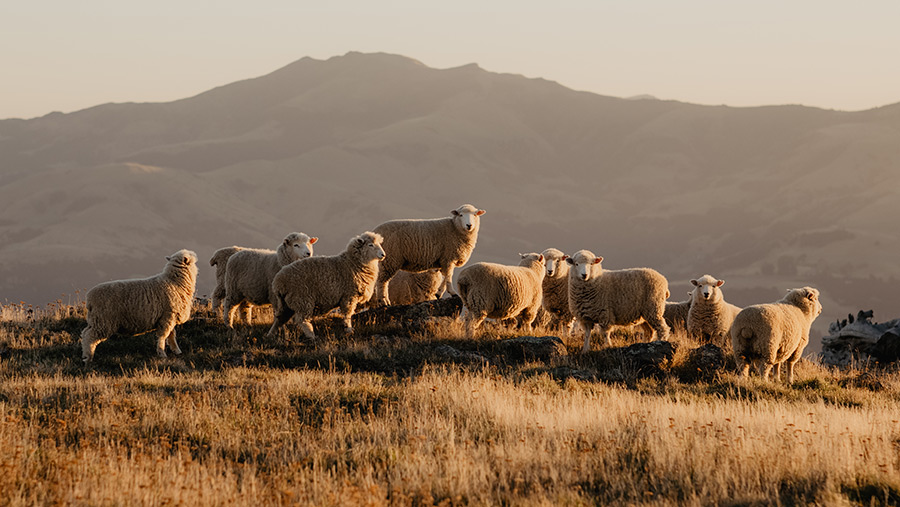Farmers under threat as ministers sign UK-NZ free-trade deal
 © New Zealand/Adobe Stock
© New Zealand/Adobe Stock All tariffs will eventually be removed from UK imports of New Zealand lamb, beef, butter and cheese after a new free-trade agreement (FTA) was signed on Monday (28 February) amid fierce criticism that it was deeply damaging to domestic producers.
The UK has agreed to eliminate 96.7% of tariffs for NZ products entering the UK from the first day the agreement is ratified – likely to be in summer 2023.
The exceptions are the UK’s sensitive agricultural products, including beef, sheepmeat and cheese, which will be subject to a transitional tariff rate quota (TRQ), which will be phased out over time.
See also: New Zealand delight at trade deal contrasts with UK farmer dismay
Sarah Baker, senior strategic insight manager at AHDB, said tariffs on butter and cheese imports into the UK would be eliminated over six years, beef after 10 years, and sheepmeat after 20 years.
In return, all tariffs on UK products entering New Zealand will be removed from day one, according to the deal signed by UK’s international trade secretary, Anne-Marie Trevelyan, and New Zealand trade minister Damien O’Connor.
Grave concerns
Organisations representing UK farmers have voiced grave concern about what this deal means for producer members.
NFU president Minette Batters suggested there was “extremely little” in the trade deal to benefit British farmers, who were at a disadvantage due to their significantly higher costs of production.
The government had asked British farmers to go “toe-to-toe” with some of the most export-orientated farmers in the world, she added, without the benefit of decades of strategic investment that the New Zealand government had made in farming and exports.
In Wales, NFU Cymru president Aled Jones warned that the deal had “significant downside risks” for the red meat and dairy sectors.
He called on the UK government to convene “as a matter of urgency” the recently announced Food and Drink Export Council and to ensure its agri-food attachés are in post.
For Scottish farmers and crofters, the cumulative impact of the New Zealand deal, following so swiftly after the Australia agreement, would be “substantial”, said NFU Scotland president Martin Kennedy.
“As with the Australian deal, a cap on tariff-free imports is merely a slow journey to allow New Zealand, a major exporter of food and drink, unfettered access to food and drink UK markets,” he reckoned.
Scrutiny
The agreement will now be scrutinised by the Trade and Agriculture Commission for a three-month period and later by the government and select committees before the process for ratification is triggered.
This is expected to be in mid-2023, as legislation must be put in place ahead of ratification.
Key aspects of the agreement
Beef
A tariff rate quota (TRQ) of 12,000t will apply in the first year, rising in equal increments to 38,820t in year 10.
Any product exceeding the TRQ will be subject to the World Trade Organisation’s (WTO) most favoured nation (MFN) tariff rate.
Between years 11 and 15, a product-specific safeguard will restrict beef imports into the UK to 43,056t in year 11, rising in equal increments to 60,000t in year 15.
Any product exceeding this safeguard will be subject to a 20% tariff.
Sheepmeat
There will be a transitional TRQ starting at 35,000t for years one to four, rising to a TRQ of 50,000t for years five to 15.
Any product exceeding these quantities in any given year will be subject to WTO MFN tariffs.
This TRQ would only be triggered once the WTO country-specific TRQ of 114,000t is filled by 90%.
Between years 16 and 20, a product-specific safeguard will be in place.
Butter and cheese
The transitional quota for butter will open at 7,000t and increase in equal instalments to 15,000t in year five.
Similarly, cheese will become tariff-free over five years, with the transitional quota starting at 24,000t and rising in equal instalments to 48,000t by year five.
Products of geographical indication (GI)
There is no recognition of products of GI, but there is a commitment that if New Zealand implements its own scheme, the UK would also benefit from similar protection.
